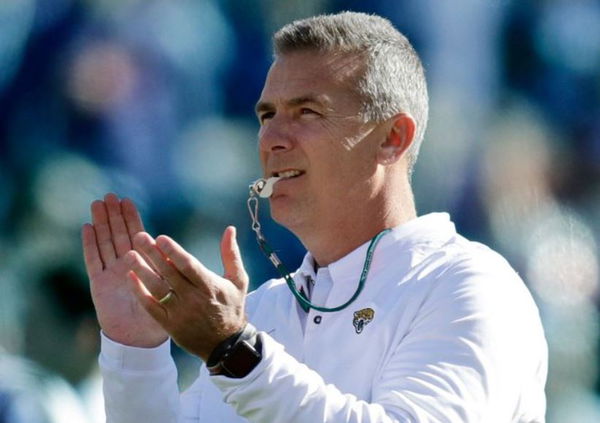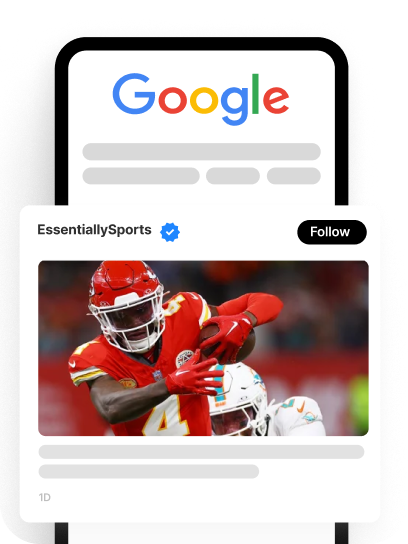
Imago
Syndication: Treasure Coast Florida State Seminoles head coach Mike Norvell takes a second to soak in the moment. The Florida State Seminoles defeated the Louisville Cardinals 16-6 to claim the ACC Championship title in Charlotte, North Carolina on Saturday, Dec. 2, 2023. , EDITORIAL USE ONLY PUBLICATIONxINxGERxSUIxAUTxONLY Copyright: xAliciaxDevine/TallahasseexDemocratx USATSI_22038999

Imago
Syndication: Treasure Coast Florida State Seminoles head coach Mike Norvell takes a second to soak in the moment. The Florida State Seminoles defeated the Louisville Cardinals 16-6 to claim the ACC Championship title in Charlotte, North Carolina on Saturday, Dec. 2, 2023. , EDITORIAL USE ONLY PUBLICATIONxINxGERxSUIxAUTxONLY Copyright: xAliciaxDevine/TallahasseexDemocratx USATSI_22038999
Over the past two years, there were rumblings about the House v NCAA settlement getting approved. It took a while, but the programs already knew that it was just a matter of time before it happened. And so, last month, the settlement was authorized by Judge Claudia Wilken, opening the floodgates of revenue sharing and regulating NIL deals through a financial firm (Deloitte). In many aspects, it was a welcome change, with athletes getting a chunk of the revenue they generated, going up to $20.5 million. But who knew it would lead to a landscape where the promise of even “due process” would disappear for athletes, as FSU’s situation shows.
Watch What’s Trending Now!
Yesterday, CBS Sports’ Chris Hummer broke a story detailing Florida State’s notoriously aggressive contracts handed out to their athletes. The contracts, as per the reports, contained several excessively unreasonable clauses, which ranged from players getting fined $2,500 for losing team equipment and getting cut from the team, and the revenue sharing deal including NIL deals for suffering an injury on the field. Yes, folks, you heard it right, that too in one of the most physical sports in the world. But what was more sinister about these contracts was something else altogether.
The contracts also stipulated that no player could challenge the decision in court, and the only route would be arbitration. In arbitration, too, the athlete would have to go up against the school’s general counsel office with massive resources. Another thing the contracts mentioned, as per the report, was that FSU unilaterally extended the contract at their discretion at any time without the consent of the player. About the ‘due process’ things?
As per the report, some schools are proposing contracts where a school could even “terminate” a player for any ‘alleged’ criminal activity, disregarding due process. So, Urban Meyer, former Gators head coach, Mark Ingram II, former Heisman winner, and Rob Stone of Fox Sports sat on their 2nd June podcast episode of ‘The Triple Option’ and discussed the report and the consequences of it. Meyer weighed in with a valid question from a recruit’s perspective when Mike Norvell would go on to visit recruits on the road.
“If you lose a pair of shoes, it’s going to cost you possibly $2,500. And if you get hurt in one of the most violent sports and tough sports out there, you’re going to be in breach of contract. What’s the response, Mark?” Mark Ingram, without any hesitation, gave a blunt reply if he would be in any recruit’s place.
“Coach, just give me a copy of that, and, I’mma gonna talk to you later. Okay? Bro, like, for one, they can extend me, coach. So, say I have an amazing Heisman season. We won a national championship, and I outplayed my value, right? They can extend me without my consent. So, now I’m getting underpaid,” replied Ingram to Meyer. However, this isn’t the only concern that FSU could face.

Let’s put recruiting and the program’s performances aside for a moment. What these aggressive terms and clauses in contracts do is create a slippery slope from which there can even be a point of no return. And it’s not just about FSU, as one agent told CBS. “I don’t think Florida State is the worst at all in this business. There are schools I trust less.” The concern is real with programs framing contracts, which come in an outright gray area without regulations. This is all because of a major loophole in CFB where the employer-employee relationship isn’t yet clear, and what is left is an avenue largely ungoverned. But all of this could be detrimental, too, for programs like FSU.
Are Florida State and Mike Norvell’s program days numbered?
FSU and Mike Novell are coming after a 2-10 season last year, one of their worst since 1974. But despite that season, they are still touted to come back this year and are recruiting quite aggressively. For instance, their 2026 class ranks 13th nationally with 20 commits already. Moreover, the recruits too are quite promising with 11th-ranked tight end Xavier Tiller, 1oth ranked athlete Efrem White, and Devin Carter, 19th-ranked WR. So, of course, the recruiting is top-notch. But the contracts they are handing over can derail this class sooner than Mike Norvell can put a band-aid on it.
“Every major college program is going to go, let’s go look at Florida State’s roster real quick, and let’s go see who’s on it and who they’re recruiting, and let’s just go remind them. Maybe give them a subtle little nudge, like, hey! You might be giving up A, B, C, and D. And we don’t do that at X University. You might want to re-evaluate some things,” echoed Rob Stone about how other programs could leverage their favorable contracts against FSU. The verdict?
More than 4,000 players had entered the transfer portal this cycle, and the numbers were growing every year. So, yes, the contracts surely needed to be put in place to ensure the return of the money that programs like FSU might be investing. But all that could have been done without putting unilateral statements and aggressive language, right? Sure, a program needs to take care of its interests. But things like cutting a kid from the team for the injury he suffered playing for the team? Isn’t this a bit excessive? It’ll be like how Urban Meyer proclaimed at last, “If this is legit, this goes through, which I’m so skeptical, then the days of Florida State are numbered.” Hopefully, FSU hears the alarm bells.




